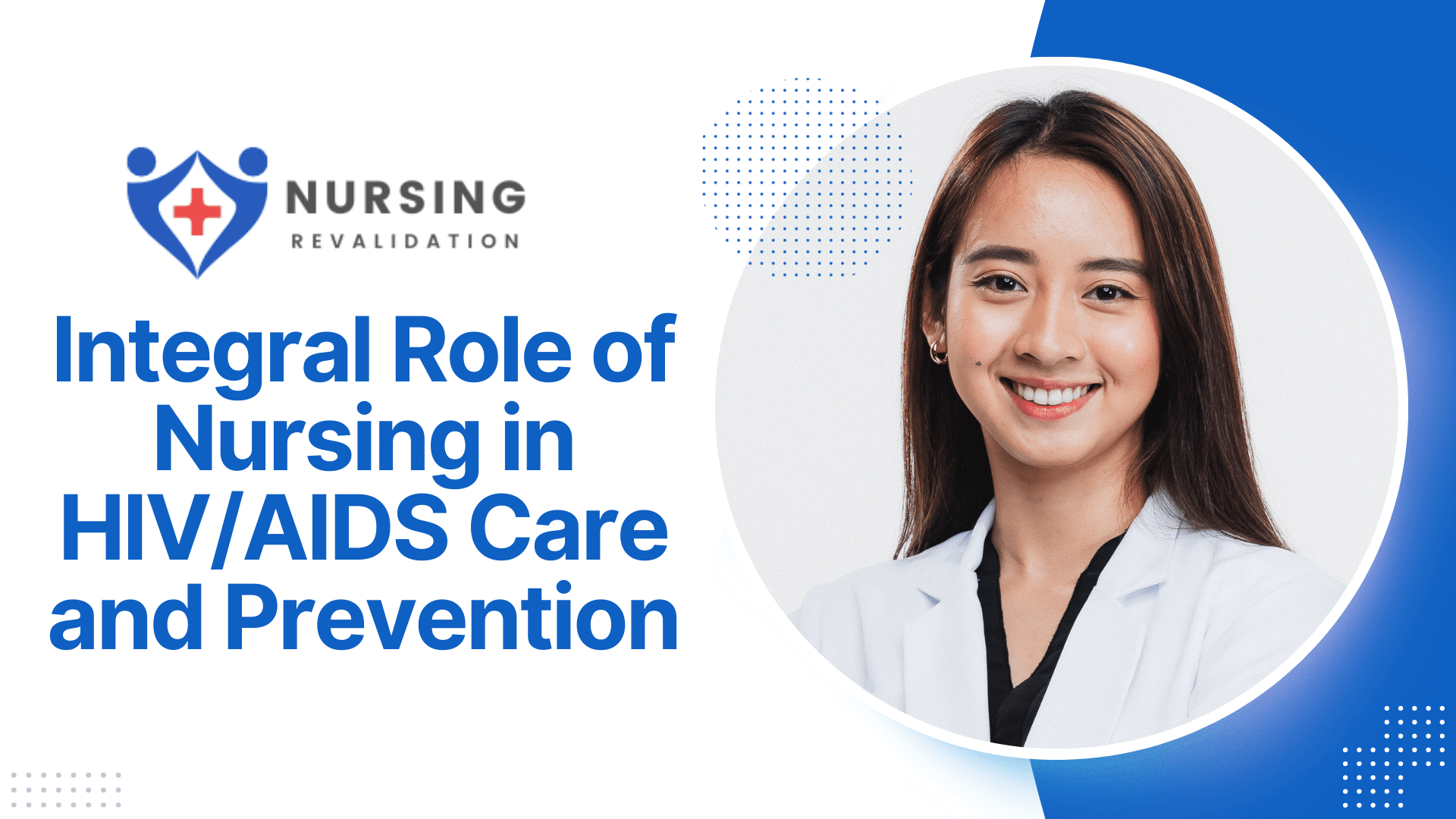In the realm of healthcare, nurses stand as frontline warriors, playing an indispensable role in combating diseases and promoting public health. Amidst the myriad of health challenges, HIV/AIDS remains a significant global concern, necessitating a multidisciplinary approach for effective management and prevention. Within this landscape, the role of nursing emerges as pivotal, encompassing various dimensions of care delivery, education, advocacy, and research. This comprehensive guide explores the profound impact of nursing in HIV/AIDS care and prevention, shedding light on its significance, challenges, and evolving practices.
Understanding HIV/AIDS: An Overview
HIV (Human Immunodeficiency Virus) is a viral infection that attacks the body’s immune system, leading to a progressive weakening of immune function. AIDS (Acquired Immunodeficiency Syndrome) is the advanced stage of HIV infection, characterized by severe immune deficiency and susceptibility to opportunistic infections and malignancies. Since its emergence in the 1980s, HIV/AIDS has posed a global health crisis, with an estimated 38 million people living with HIV worldwide.
Table: Overview of HIV/AIDS Statistics by Region
| Region | Estimated Number of People Living with HIV (2019) | HIV Prevalence Rate (Adults, 15-49 years) | Estimated AIDS-related Deaths (2019) |
|---|---|---|---|
| Sub-Saharan Africa | 25.7 million | 6.1% | 470,000 |
| Asia and the Pacific | 5.8 million | 0.2% | 260,000 |
| Latin America and the Caribbean | 2.1 million | 0.4% | 50,000 |
| North America and Western/Central Europe | 2.3 million | 0.3% | 15,000 |
| Eastern Europe and Central Asia | 1.5 million | 0.8% | 42,000 |
The Crucial Role of Nursing in HIV/AIDS Care
Holistic Patient Care: Nurses serve as primary caregivers, offering holistic support to individuals living with HIV/AIDS. Beyond medical interventions, they address the physical, emotional, and psychosocial needs of patients, fostering a compassionate and supportive environment conducive to healing and well-being.
Medication Management and Adherence: Ensuring optimal adherence to antiretroviral therapy (ART) is paramount in HIV/AIDS management. Nurses play a vital role in medication administration, monitoring treatment response, and providing patient education on the importance of adherence, thus empowering individuals to take control of their health.
Prevention Education and Counseling: Education is a powerful tool in HIV/AIDS prevention. Nurses engage in comprehensive health education initiatives, equipping individuals with knowledge about HIV transmission, risk reduction strategies, and the importance of regular testing. Through counseling sessions, they address stigma, discrimination, and psychosocial barriers, promoting positive behavior change and empowerment.
Community Outreach and Advocacy: Nurses extend their impact beyond clinical settings through community outreach programs and advocacy efforts. They collaborate with community organizations, government agencies, and non-profit groups to raise awareness, promote HIV testing, and advocate for policies that support HIV/AIDS prevention and care.
Challenges and Innovations in Nursing Practice
Stigma and Discrimination: Despite advancements in HIV/AIDS treatment and care, stigma and discrimination persist, posing significant barriers to care access and retention. Nurses confront these challenges by fostering non-judgmental, inclusive care environments and advocating for policies that combat HIV-related stigma.
Integration of Technology: Technology plays a transformative role in modern healthcare delivery. Nurses leverage telehealth platforms, mobile applications, and online resources to enhance patient education, facilitate remote monitoring, and promote medication adherence, thereby expanding access to quality care, particularly in underserved communities.
Addressing Health Disparities: Vulnerable populations, including racial and ethnic minorities, LGBTQ+ individuals, and marginalized communities, bear a disproportionate burden of HIV/AIDS. Nurses advocate for health equity and social justice, addressing underlying determinants of health and working collaboratively to eliminate disparities in HIV/AIDS prevention and care.
The Future of Nursing in HIV/AIDS Care and Prevention
As the landscape of HIV/AIDS continues to evolve, nurses remain at the forefront of innovation, advocacy, and compassionate care delivery. Through ongoing education, research, and collaboration, they contribute to advancements in treatment modalities, prevention strategies, and holistic care approaches, ultimately striving towards the vision of an AIDS-free generation.
Conclusion
In the battle against HIV/AIDS, nurses stand as beacons of hope, embodying the principles of compassion, resilience, and excellence in care delivery. Their multifaceted role encompasses clinical expertise, education, advocacy, and community engagement, shaping the trajectory of HIV/AIDS prevention and care on a global scale. As we navigate the complexities of this epidemic, let us recognize and celebrate the invaluable contributions of nurses in creating a healthier, more equitable world for all.

